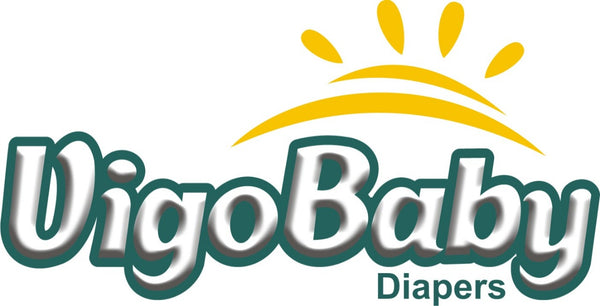Choosing between cloth vs disposable diapers is a common dilemma for new parents. Both options come with their own set of benefits, but what works best depends on your lifestyle and priorities.
Some parents appreciate the reusability of cloth diapers, while others prefer the ease and efficiency that disposable diapers offer.
Let’s explore both types by focusing on convenience, cost, environmental factors, and baby comfort, while highlighting the key benefits of disposable diapers that make them popular among many families.
Why Disposable Diapers Are the More Convenient Choice
When it comes to convenience, disposable diapers are a clear winner. Parents often find them easier to manage, especially during hectic days.
1. Ready to Use:
Disposable diapers are pre-assembled and ready straight from the package, unlike cloth diapers, which need washing, drying, and folding before use.
2. No Extra Laundry:
With disposable diapers, you avoid the hassle of frequent washes and drying cycles. You simply toss them after use.
3. Ideal for Travel:
Disposable diapers are a great option when you’re on the go, as you don’t need to carry around dirty diapers until you can wash them.
4. Better Overnight Protection:
Disposable diapers are more absorbent, which makes them suitable for overnight use, helping both babies and parents get uninterrupted sleep.
For parents juggling multiple responsibilities, disposable diapers save time and reduce stress, allowing more time to focus on their baby and other tasks.
Cost: A Practical Option for Many Families
Though cloth diapers may appear cost-effective at first, disposable diapers offer financial flexibility and convenience that many families value.
Affordable Upfront:
Disposable diapers don’t require a large initial investment, unlike cloth diapers, which often require buying multiple pieces and inserts all at once.
No Hidden Costs:
Cloth diapers can raise utility bills due to constant washing, while disposable diapers eliminate those ongoing maintenance costs.
Flexible Sizing:
Disposable diapers allow parents to buy the exact size needed as their baby grows, preventing unnecessary spending on items the child might quickly outgrow.
While cloth diapers can save money over time, the reduced workload and predictable spending make disposable diapers a practical choice for many households.
Comparison of Cloth and Disposable Diapers
Both cloth and disposable diapers have environmental impacts, though in different ways.
1. Water and Energy Use
Cloth diapers need regular washing, which can lead to significant water and energy consumption. Each cycle requires water for rinsing and heating, contributing to a higher environmental footprint.
In contrast, disposable diapers eliminate the need for washing, making them a more resource-efficient option. This efficiency helps parents reduce their overall impact on water and energy resources.
2. Waste Generation
Cloth diapers are reusable, which theoretically minimizes waste over time. However, they still require frequent laundering, which may lead to some disposable waste.
Disposable diapers, while contributing to landfill accumulation, are now being produced with biodegradable materials to reduce their environmental impact. As a result, parents can choose brands that align with their eco-conscious values without sacrificing convenience.
3. Carbon Footprint
The carbon footprint of cloth diapers increases due to the energy used in washing and drying them regularly. This consumption can add up over time, especially in areas with limited renewable energy sources.
Disposable diapers, on the other hand, generate emissions primarily during manufacturing and transportation but avoid ongoing energy use associated with laundering. This makes disposables a more straightforward choice for parents concerned about their overall carbon impact.
4. Sustainable Options
Many disposable diaper brands are now focusing on sustainability, offering products made from plant-based materials and incorporating biodegradable elements. Some brands even provide recycling or composting programs, helping to mitigate waste.
While cloth diapers are inherently reusable, the modern advancements in disposable options allow parents to make eco-friendly choices without the hassle of constant washing.
This evolution in disposables provides a balanced approach to diapering that respects both convenience and the environment.
Ultimately, both options affect the environment, but advancements in disposable diapers offer more eco-conscious choices without compromising convenience.
Cloth or Disposable? Find What Works Best for You and Your Baby
Both cloth and disposable diapers have their advantages, but disposable diapers stand out for their ease of use, superior absorbency, and minimal upkeep. They offer a reliable solution for parents seeking convenience and comfort for their baby, helping make everyday care simpler and stress-free.
Explore our store’s wide range of high-quality disposable diapers designed for comfort and convenience. Click here to shop now and find the perfect fit for your little one!
FAQ’s
1: Are disposable diapers really more convenient than cloth diapers?
Yes, disposable diapers are pre-assembled and ready to use, eliminating the need for washing and drying. They are especially beneficial during travel and busy days.
2: Do cloth diapers save money in the long run?
While cloth diapers can be cheaper over time, they require an upfront investment and ongoing laundry costs. Disposable diapers offer predictable spending without the maintenance expenses associated with cloth.
3: How do disposable diapers impact the environment?
Disposable diapers contribute to landfill waste but are increasingly made from biodegradable materials. They don’t require washing, which can reduce water and energy consumption compared to cloth diapers.
4: Can I find eco-friendly options among disposable diapers?
Yes, many disposable diaper brands focus on sustainability, offering products made from plant-based materials and featuring recycling or composting programs, making them more environmentally friendly choices.

